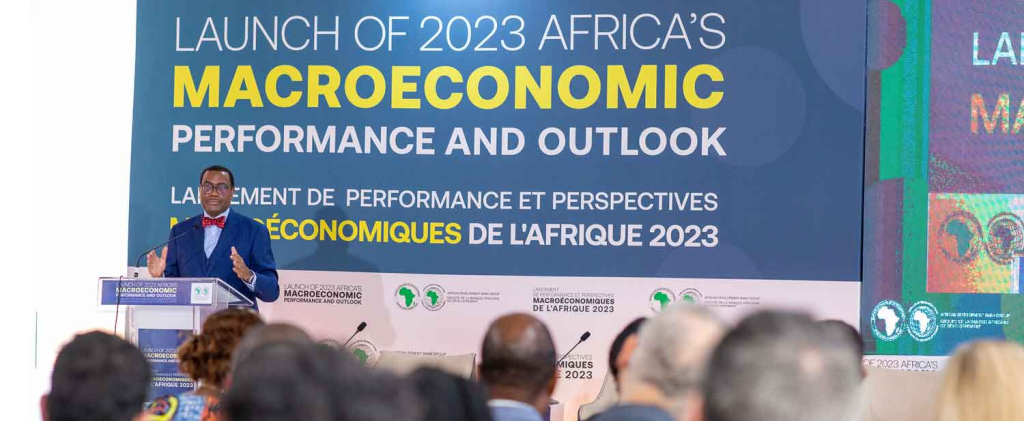
The ‘Africa’s Macroeconomic Performance and Outlook’ report released by African Development Bank Group (AFDB) detailed the economic activities and ongoing commercial projects in Africa with great emphasis on the GDP growth of various countries and regions in the continent.
“Africa’s top five performing economies before the covid-19 pandemic are expected to grow by over 5.5% on average in 2023-2024 and reclaim their position among the world’s ten fastest-growing economies. Those include Rwanda, which is projected to grow by 7.9%, Côte d’Ivoire by 7.1%, Benin by 6.4%, Ethiopia by 6.0%, and Tanzania by 5.6%.”
According the released paper the “estimates show that Africa’s average real gross domestic product slowed to 3.8 percent in 2022. The slowdown reflects the impact of downside factors including spillovers from rising geopolitical tensions, climate change risks, and the lingering impacts of COVID-19, which have been amplified by tightening of global financial conditions and the associated increase in domestic debt service costs. Despite the slowdown, Africa demonstrated continued resilience, with all but one country maintaining positive growth rates in 2022 and with stable outlooks in 2023 and 2024.”
“Africa’s growth rate is projected to average about 4 percent in 2023 and 2024, higher than the world’s projected averages of 2.7 percent and 3.2 percent, respectively.Tighter global financial conditions put pressure on African domestic currencies, raising the risk of already high inflation; but inflation is projected to ease in 2023 as countries sustain restrictive monetary and structural policies. Inflation is also expected to decline to single digits by 2024, even lower than the level preceding outbreak of COVID-19.”
Five African countries have a projected annual GDP growth rate of more than 5.5 percent and could return to the league of the world’s top 10 fastest-growing economies in 2022. The projected stability in medium-term growth largely reflects the benefits of policy support in Africa, the global efforts to mitigate the impacts of exogenous shocks and rising uncertainty, and the stable growth in Asia, one of Africa’s main trading partners.
African economies are indeed resilient. With 54 countries at different stages of growth, different economic structures, and diverse resource endowments, the passthrough effects of global shocks always differ by region and by country. Slowing global demand, tighter financial conditions, and disrupted supply chains therefore had differentiated impacts on African economies.”
It further stated that “Policy recommendations include a strategic mix of monetary, fiscal and structural policies to curb inflation while protecting the most vulnerable populations and economic sectors to continue to spur growth; strategic industrial policies needed to correct market failures, drive export orientation, and encourage healthy competition in key sectors; policies to boost regional trade to enhance resilience to spillovers from the global economic slowdown and reduce persistent trade deficits; and policies that can mobilize and leverage private sector financing for development in Africa.
The report reiterates the call for accelerated implementation of structural reforms to enhance government-enabled private sector industrialization in key sectors: in agriculture and agribusiness; in climate-smart and just energy transitions; in value chain development in natural resource sectors, especially in minerals for green development; in quality health care infrastructure and pharmaceutical industries. in digitalization and e-governance; and more.”

Leave a Reply